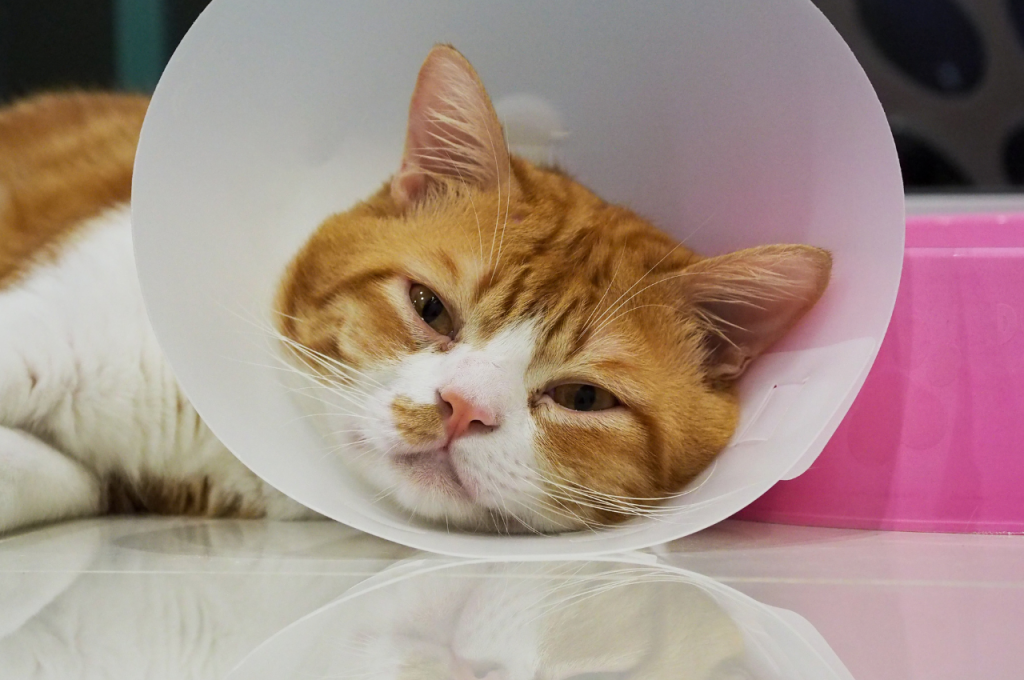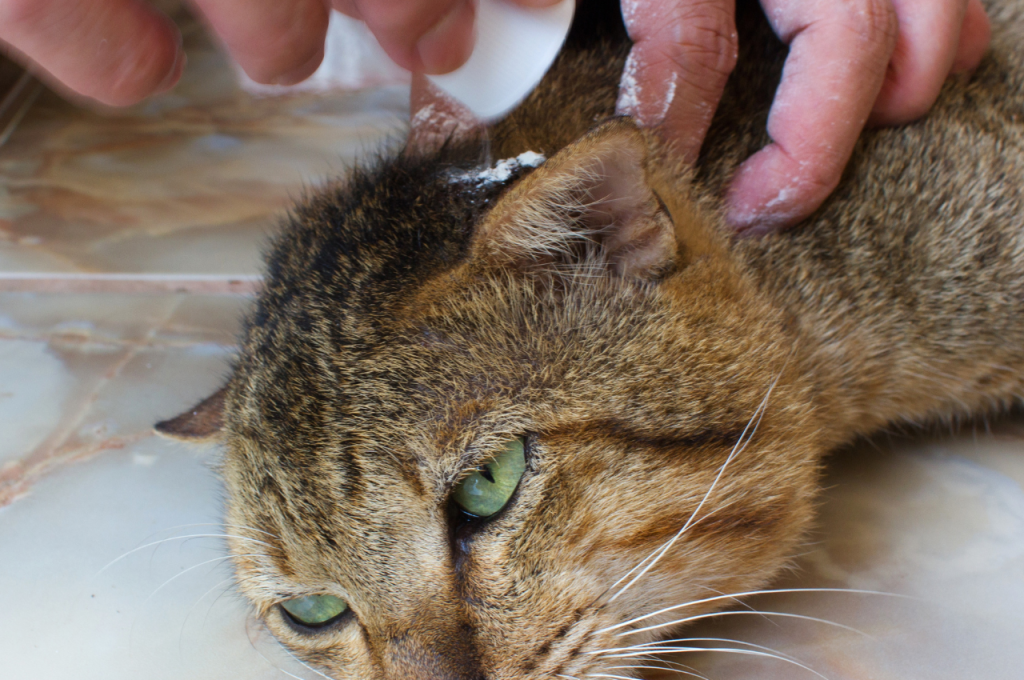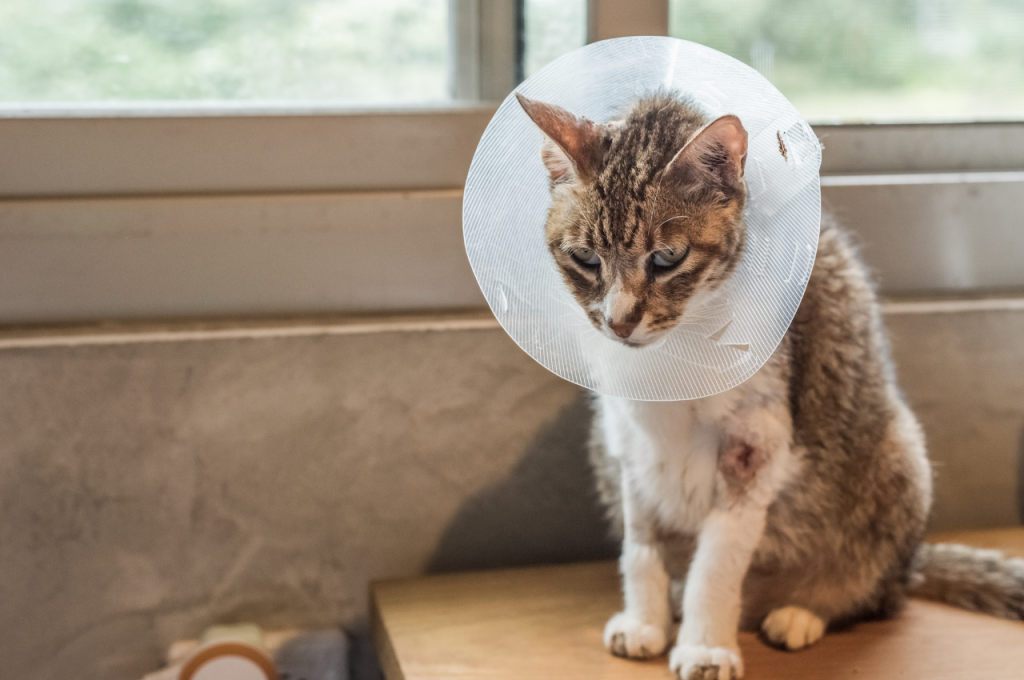To make a dying cat comfortable, provide a quiet and warm environment where they feel safe and secure. Offer soft, supportive bedding to help them rest peacefully.
Ensure easy access to food and water, and consider providing their favorite treats or meals to stimulate their appetite. Regularly check on them and offer gentle, soothing touches or calming words. If needed, consult with a veterinarian for additional pain management or comfort measures. Keeping the environment calm and supportive can ease their distress and improve their quality of life during this difficult time. Remember, your presence and compassion are invaluable in providing comfort and peace.
Recognizing The Signs of a Dying Cat
Recognizing the signs of a dying cat can be difficult but crucial for providing appropriate care. Common signs include severe lethargy or weakness, a noticeable decrease in appetite or drinking, and significant changes in behavior, such as hiding or seeking solitude. You might also observe labored breathing, irregular or slowed heartbeat, and a noticeable decline in grooming. Additionally, your cat may experience incontinence or difficulty moving. These signs indicate that your cat’s body is shutting down. It’s important to consult with a veterinarian to confirm these observations and discuss end-of-life care options. Providing comfort and support during this time can help ease your cat’s transition.

Physical Changes
A dying cat may exhibit various physical changes that indicate its declining health. These can include weight loss, decreased appetite, dehydration, and weakened mobility. Additionally, you may notice labored breathing and changes in body temperature. It’s important to monitor these signs closely and seek veterinary care if necessary.
Behavioral Shifts
When a cat is nearing the end of its life, there are behavioral shifts that may become apparent. These can manifest as withdrawal, increased vocalization, restlessness, and changes in litter box habits. Seeking solitude or seeking more attention from human companions are also common behavioral changes. Providing comfort and support during this time is crucial for the cat’s well-being.
Creating a Peaceful Environment
Creating a peaceful environment for a dying cat is essential to help them feel as comfortable as possible during their final days. Cats are sensitive to their surroundings, and a calm and familiar environment can provide them with a sense of security and tranquility. Here are some ways to ensure your cat is in a peaceful setting as they near the end of their life:
Quiet Spaces
Designate a quiet area in your home where your cat can retreat to when they need rest or solitude. This space should be away from noisy household activities and other pets, providing a serene environment for your cat to relax undisturbed.
Familiar Surroundings
Keep your cat in their familiar surroundings as much as possible. Cats find comfort in routine and the familiar sights, sounds, and smells of their home. Avoid making any major changes to their living space, such as rearranging furniture or introducing new items that could cause stress.
Managing Pain and Discomfort
Managing pain and discomfort for a dying cat is essential for their comfort during their final days. To ensure your cat’s well-being, work closely with your veterinarian to assess and address pain through appropriate medications. Create a serene and cozy environment with soft bedding and easy access to food and water.
Maintain a gentle, comforting presence, offering reassurance through calm, soothing touches. Regularly check for any signs of distress or discomfort and make adjustments as needed. Monitoring their condition closely and maintaining open communication with your vet will help you provide the most compassionate care.
Medication Options
When managing pain and discomfort in a dying cat, medication can play a crucial role. Pain relief medications prescribed by a veterinarian can help alleviate physical discomfort and improve the quality of life for your feline friend. It’s important to follow the vet’s instructions carefully and administer the medication as prescribed.
Alternative Relief Methods
Aside from traditional medication, there are alternative relief methods that can provide comfort to a dying cat. These may include acupuncture, massage therapy, and herbal remedies. While these methods may not replace medication, they can complement pain management and contribute to the cat’s overall well-being.
Nutrition and Hydration
To make a dying cat comfortable, it’s important to focus on nutrition and hydration. Offer small, frequent meals of soft, easy-to-digest food and ensure access to fresh water at all times. Consider adding electrolyte solutions or broth to their water to encourage hydration.
Nutrition and hydration are essential for a dying cat to maintain its health and comfort. Appetite support and hydration assistance play a crucial role in keeping the cat comfortable during its final days. Here is how you can ensure your dying cat receives proper nutrition and hydration.
Appetite Support
When a cat is dying, it may lose its appetite. In such cases, you need to encourage your cat to eat. You can try feeding your cat canned food or baby food with no onion or garlic. These foods are easy to digest and provide the necessary nutrients to the cat. You can also try warming the food as it can make it more appetizing for the cat. If your cat is still not eating, you can consult a veterinarian for appetite stimulants.
Hydration Assistance
Dehydration is a common problem in dying cats, and it can lead to various health issues. You can help your cat by providing fresh water at all times. You can also try offering water with low-sodium chicken broth or tuna juice as it can make the water more appealing to the cat. If your cat is still not drinking water, you can use a syringe or eyedropper to give water to your cat. You can also consult a veterinarian for subcutaneous fluids to keep your cat hydrated.
In conclusion, proper nutrition and hydration are crucial for a dying cat’s comfort. You can provide appetite support by feeding the cat canned food or baby food and encourage hydration by providing fresh water at all times. If your cat is not responding to these methods, consult a veterinarian for further assistance.
Maintaining Cleanliness and Grooming
To ensure a dying cat’s comfort, maintain cleanliness and grooming by gently brushing its fur and keeping its living space tidy. This can help reduce stress and promote a sense of well-being during its final days. Regular grooming and a clean environment are essential for the cat’s comfort.

Gentle Cleaning
Use a soft, damp cloth for gentle cleaning of your cat’s body.
Coat Care
Maintaining cleanliness and grooming is crucial for making a dying cat comfortable. Regular grooming can help prevent skin issues and promote relaxation. Gentle cleaning with a soft cloth can keep your cat feeling fresh. Coat care involves brushing to maintain a clean and healthy fur coat. Regular grooming and cleanliness routines can improve your cat’s well-being.
Emotional Support and Companionship
To make a dying cat comfortable, emotional support and companionship are crucial. Spend quality time with your cat, offer soft blankets and pillows, and provide a quiet and peaceful environment. Additionally, ensure that your cat is receiving proper medical care and attention from a veterinarian.
Caring for a dying cat can be an emotionally exhausting experience for pet owners. Emotional support and companionship play a significant role in helping your cat feel comfortable and loved in their final days. As a pet owner, you can provide comfort to your cat by being present and attentive to their needs. Here are some ways to provide emotional support and companionship to your dying cat.
Quality Time Together
Spending quality time with your dying cat can help them feel loved and valued. You can engage in activities that your cat enjoys, such as playing with their favorite toy or gently stroking their fur. Keep in mind that your cat may not have the energy to play for long periods, so it’s important to be patient and follow their lead.
Comforting Presence
Your presence can be comforting to your dying cat, even if you’re not actively engaging with them. You can sit close to your cat, talk to them in a soothing voice, and offer reassuring touches. Your cat may also find comfort in the sound of your voice, so consider reading to them or playing soft music.
Supporting Their Needs
Supporting your cat’s physical needs can also provide emotional comfort. Ensure that your cat has access to fresh water, food, and a comfortable place to rest. You may also need to assist your cat with grooming and litter box use if they are too weak to do so themselves.
Seeking Professional Help
In some cases, emotional support and companionship may not be enough to provide comfort to a dying cat. If your cat is experiencing pain or discomfort, seek the help of a veterinarian. They can offer medication or other forms of treatment to help manage your cat’s symptoms and ensure that they are as comfortable as possible. Providing emotional support and companionship to a dying cat can be a challenging experience, but it’s also a way to show your cat how much you care. By being present, attentive, and supportive, you can help your cat feel comfortable and loved in their final days.
End-of-life Decisions
When caring for a dying cat, it’s crucial to consider end-of-life decisions that prioritize comfort and quality of life. Here are some important aspects to keep in mind:
Euthanasia Considerations
- Discuss with your vet about euthanasia options.
- Consider your cat’s pain and suffering.
- Ensure a peaceful and humane process.
Hospice Care At Home
- Create a comfortable hospice care environment.
- Provide pain management and medication as needed.
- Offer love, support, and companionship during this time.
Memorializing Your Cat
When it comes to memorializing your cat, it can be a meaningful way to honor their memory.

Creating Memorials
Creating memorials can help you cherish the special moments shared with your cat.
- Planting a tree in their memory
- Creating a photo album or scrapbook
- Setting up a dedicated space in your home
Coping With Loss
Coping with loss is an essential part of the grieving process.
- Allow yourself to feel your emotions
- Seek support from friends and family
- Consider joining a pet loss support group
Conclusion
Making a dying cat comfortable requires compassion, patience, and understanding. By providing a warm and quiet environment, offering pain relief medication, and ensuring proper hydration and nutrition, you can help alleviate their discomfort. Regular vet check-ups and gentle interactions can also contribute to their well-being.
Remember, every cat deserves comfort and love, especially during their final days.
